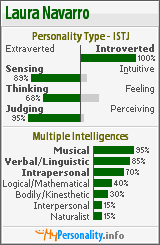and I want to tell you about it now, instead of waiting until the very end to review it. So, I’m going to post at least twice about it, not quite like The Pursuit of Holiness where I summarized every few chapters, but more than others where I just post a single review entry. As you probably know if you follow my blog, I follow the blog of Tim Challies. My husband sent me a few of his blog posts a few years ago and I got hooked. I find his writing relevant and right-thinking. I have had my own thinking challenged a few times by his blog posts. And other times I’ve found he has put into better words much of what I was thinking (especially when reviewing The Shack and other similar things.)
As a result of following his blog, it was evident that he was working on another book called The Next Story: Life and Faith After the Digital Explosion. It’s about technology and how it impacts our lives. We pre-purchased it for the Kindle and got a nice discount on it as a result. Plus, it is the free audio book this month on Christianaudio.com. And for full disclosure – I then received a hard copy of the book in return for blogging about it. But I would have blogged about it anyway.
My reading lately is going very slowly. There is just so much other stuff to do. So, I’m not complaining, just noting that I have a few books in progress and making very slow progress in all of them. And I want you to be able to take advantage of the Christian audio deal this month if you are an audio book person. I’m actually reading the hard cover and then listening to the audio book of the same chapter the next day. I did that with The Pursuit of Holiness too, and found that it helps to get my attention and save the information.
Anyway – here’s a bit about how the book is structured and what it’s about. He starts with the point that most of us don’t take time to think about things – I mean deep thinking about the meaning of things and the impact of things. We are too busy living our lives, keeping up with our jobs, running from one place to another. I think society in general has often left the deep thinking to the philosophers. But he challenges us to stop and do some thinking – about how technology affects us for good and ill. And to take it even further to apply Christian values to that thinking. He wants us to get to where “our use of technology is not just thoughtful and informed, but it is informed by the Bible, by an understanding of God’s purpose for technology.” (p16)
The book is set in 9 chapters, separated into two parts. The first 3 chapters, part 1, get our attention about the importance of thinking about technology, understanding it better including how it affects us and our culture, and a brief history of how we got to where we are – after the digital explosion. I’ve read and listened to these 3 chapters. He has done the heavy lifting of seeing what other deep thinkers have said, what research has shown, and put it together for us.
In many ways these 3 chapters are not that enlightening. It’s things we should have heard or thought of or read and considered already. But it is also a good way to challenge the reader – have I thought of this or considered it? He points out that technology is good, but it is also affected by the fall, and it is really the way we use technology that is either God honoring or furthering sin.
The next section will look at ways our lives have changed as a result of the digital explosion. I’m sure he’ll include plenty of food for thought. I like that he reassures throughout that he is not saying all technology is bad. Just that we need to realize that technology that we adopt will change us, and while we only see the upside right now, we need to learn to think through the costs that will be associated with it. I’ll be back with more from this book.
{Blog title from this great video by Julian Smith, which I first saw on an A La Carte blog entry by Tim Challies}



